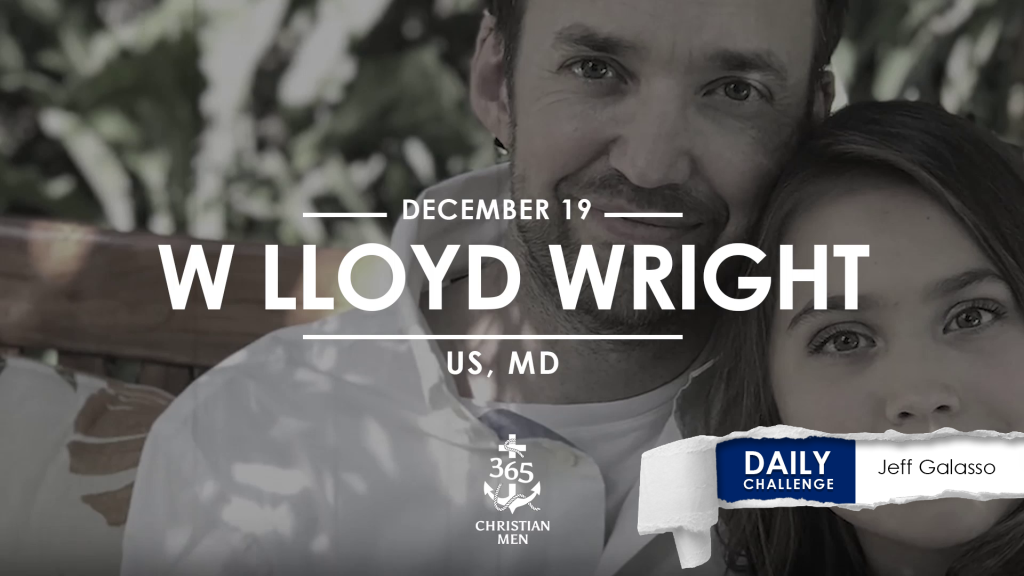December 19. W. Lloyd Wright. As a physician, Wright served Colorado School of Mines for 22 years. On this date in 1986, the university awarded Wright the Mines Medal for outstanding personal and professional contributions to the campus community.
After Mines, Wright also served as physician for Coors Brewery and Rocky Flats. Doctor Wright died in 2016; he was 99.
In hard times, unconditional love can heal the broken.
Wright’s daughter gazed up at him. The teenager’s gaze focused intensely on her father’s intelligent dark blue eyes. Some of her friends had been kicked out of the house for such news as she had, so the stakes were high.
She had planned carefully, wanting to be alone with her father when she told him. Staring across the breakfast counter in the bright turquoise kitchen, she took a deep breath. “I’m going to have a baby.”
“I love you,” he said.
In a flash he was out of his chair, rounding the counter, and the two met in the middle. At six-foot-two, Wright was a tall man, and he engulfed his daughter Candace in his long, strong arms.
“That’s when I experienced the unconditional love of the Lord,” Candace said many years later. “In my greatest time of need.” In times of greatest need, unconditional love vanquishes the darkness. It brings healing, hope, and dignity.
As a medical doctor in Golden, Colorado, Doctor Wright met a lot of people’s needs. For years he faithfully made house calls in the evenings, and he felt “exceedingly blessed” to care for his patients. He never charged widows or foreign students, and of the more than 2,000 babies he delivered, several were given his name to honor his selfless care.
Several years into Wright’s career, his son—a gifted athlete on his way to college—was killed in an accident. The healer couldn’t heal this time. He survived by throwing himself deeper into serving his patients.
His wife Lilly was inconsolable, and her depression deepened with time. She never fully recovered before Alzheimer’s took her even farther from him.
Many people thought Wright should put Lilly in a home. He was still young, and her care would be all-consuming. But Wright refused. “As long as I am able, she will be in my home next to me.” He retired from family practice and for seventeen years Wright met his wife’s needs in this time of her deepest darkness.
Wright’s granddaughter Tisha helped care for Lilly. She was seventeen when Grand Lil died. She watched Granddaddy Lloyd kneel beside Lil’s casket and take his wife’s hand. “Lilly,” he said, “I need to talk to you.” Wright told Lilly that God called them to sickness and health, and that it was an honor to serve her in her sickness. As he talked, Tisha rethought what it meant to care for others. She better understood her granddad’s unconditional love. “It showed me what commitment was,” she said.
Over his lifetime Wright memorized many long passages of Scripture, but he especially loved Psalm 23. He told Candace and Tisha he loved this passage because as God took him down specific paths of righteousness—like becoming his wife’s caregiver—he learned to honor the Lord.
For twenty-two years Wright worked at Colorado School of Mines, meeting needs beyond the medical care he gave, offering students jobs, friendship, and new shoes. He even financed cars. When Wright remarried later in life, he and his wife, Natalie, who was a nurse, served as medical missionaries.
Wright was 98 when his housekeeper had a grand mal seizure. He rushed to her side and sat with her on the floor. Cupping her face in those large, loving hands, he said, “I’m here with you.”
As Candace watched, she again saw the ever-present, unconditional love of God demonstrated through her father, an unconditional love her father had shared for ninety-nine years.
“I can do all this through him who gives me strength” (Philippians 4:13 NIV).
What needs call for your unconditional love? In hard times, unconditional love can heal the broken.
Based on an interview with Candace Olsen and Latisha Hawkins, 2019.
Story read by Blake Mattocks





